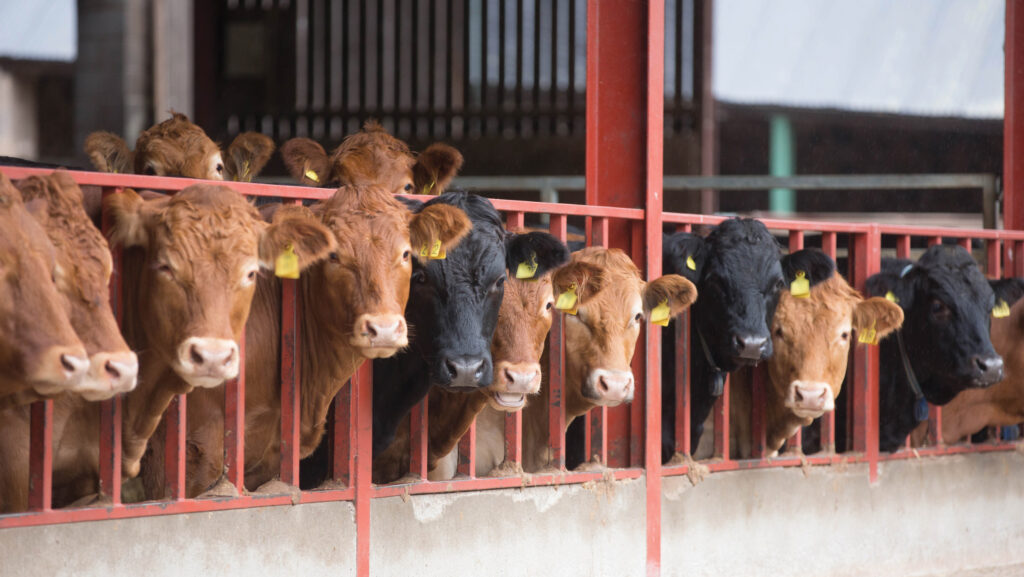Tremendous beef trade here to stay with supplies scarce
 © Tim Scrivener
© Tim Scrivener The soaring beef trade shows no sign of stopping, with industry forecasting finished prices to stay elevated at least in the short term, as supplies tighten and demand holds firm.
Base prices for finished cattle lifted above £6/kg at abattoirs in early February and there is already talk of £6.50/kg being paid to larger suppliers.
Currently, finished prices are up by more than £1/kg compared with the same week last year.
However, replacement costs are also higher to match with store cattle and calf prices rocketing up.
See also: Stirling bull trade driven by jaw-dropping £4/kg store price
Looking forward, the AHDB forecasts further beef price support during 2025, with UK beef production expected to fall by 5% during the year.
Fewer prime cattle are coming to the market, with a 6% drop in prime cattle slaughter forecast to just under 2m head in 2025.
Hannah Clarke, lead red meat analyst at AHDB, said: “The beef sector is entering 2025 in a period of significant supply constraint, which is expected to support cattle prices throughout the year.
“However, the sensitivity of consumers to prices and the cuts they choose to purchase will play a pivotal role in determining overall carcass values.”
The AHDB expects domestic beef consumption to grow by 1%, which will provide additional support to prices.
Ms Clarke added: “The supply chain will need to focus on navigating the challenges of supply constraints while maintaining product quality.”
Cattle numbers are likely to remain in short supply into 2026 with fewer calves being registered.
Beef import rise predicted
The knock-on effect of tighter supplies and higher domestic cattle prices could be an influx in beef imports.
AHDB has projected import volumes to rise by 12% in 2025, with a hefty increase in product coming from Ireland.
However, cattle numbers on the ground also remain tight there with throughputs down, according to Irish food board Bord Bia.
Irish beef producers received an average price of €6.04/kg (£5.03/kg) in early February which, while high by historic standards, is still at a noticeable discount to GB prices.
In Northern Ireland, finished beef continues to trend at roughly 50p/kg below GB prices.
Ulster farmers Union deputy president Glenn Cuddy said: “While factors such as transport costs and market conditions have historically contributed to price differences, the current situation is untenable.
“We are now urgently seeking meetings with key meat plants to address the matter and explore measures to rectify the pricing imbalance before the situation worsens for our beef farmers.”
Mr Cuddy added that the majority of NI beef is sold to the UK market and adheres to equivalent standards to Red Tractor.
“To secure a sustainable future for the NI beef industry, prices must align with GB levels to help farmers manage rising input costs, environmental regulations, and reduced direct support payments.
“Therefore, it is critical that this matter is addressed promptly.”
